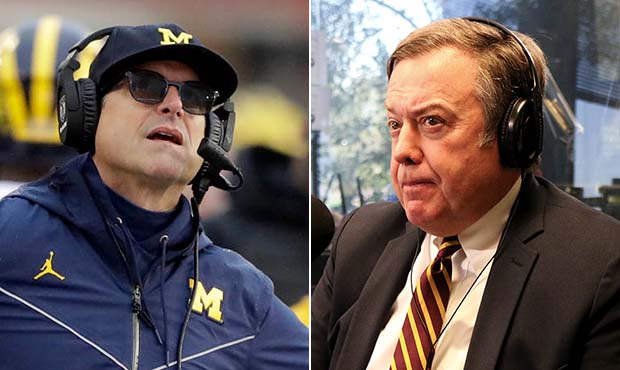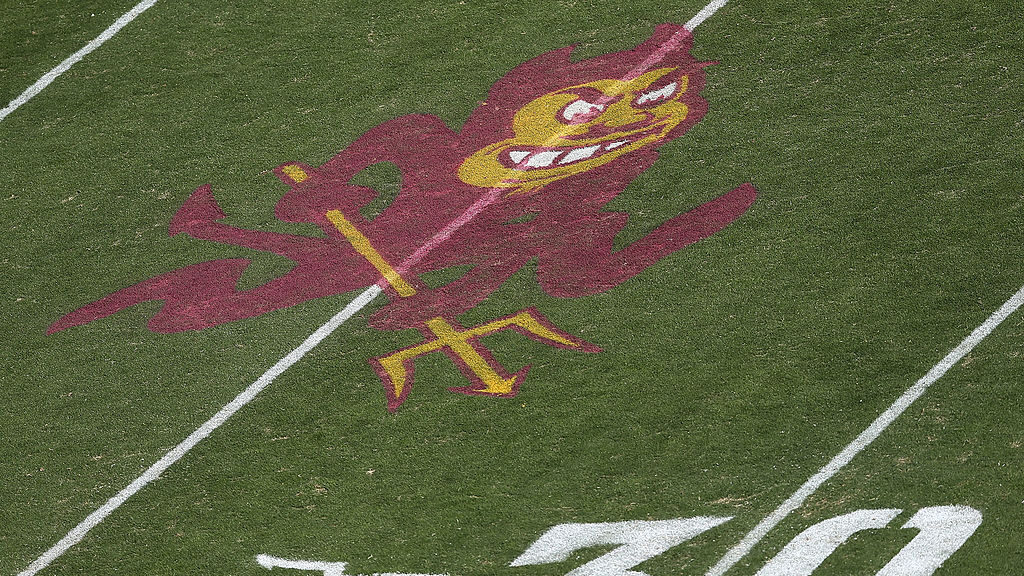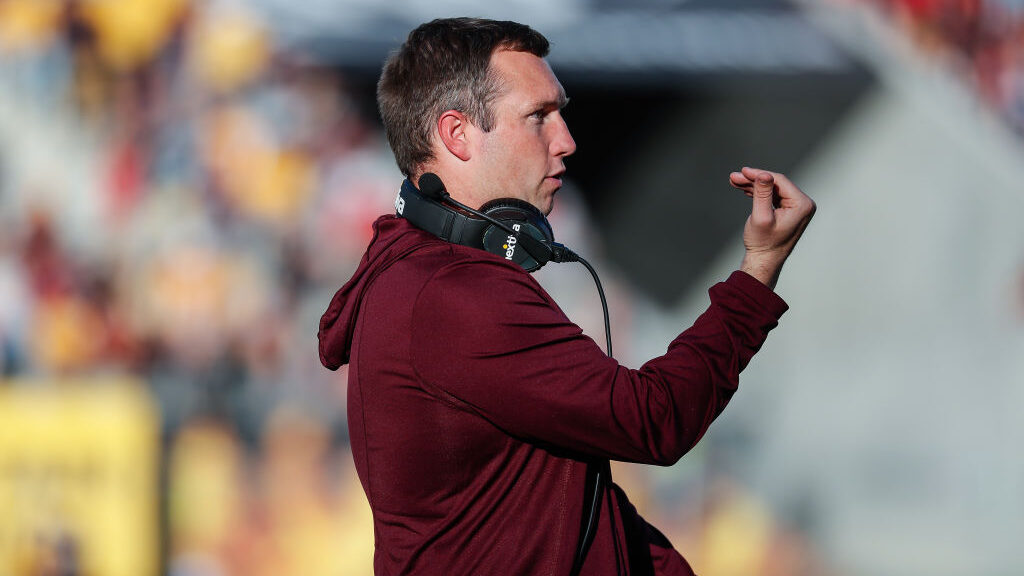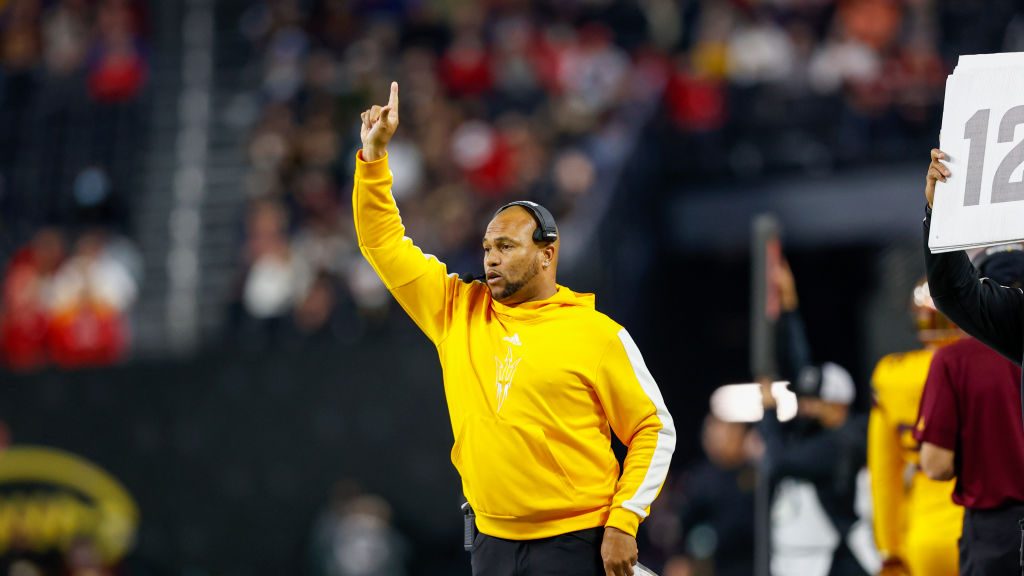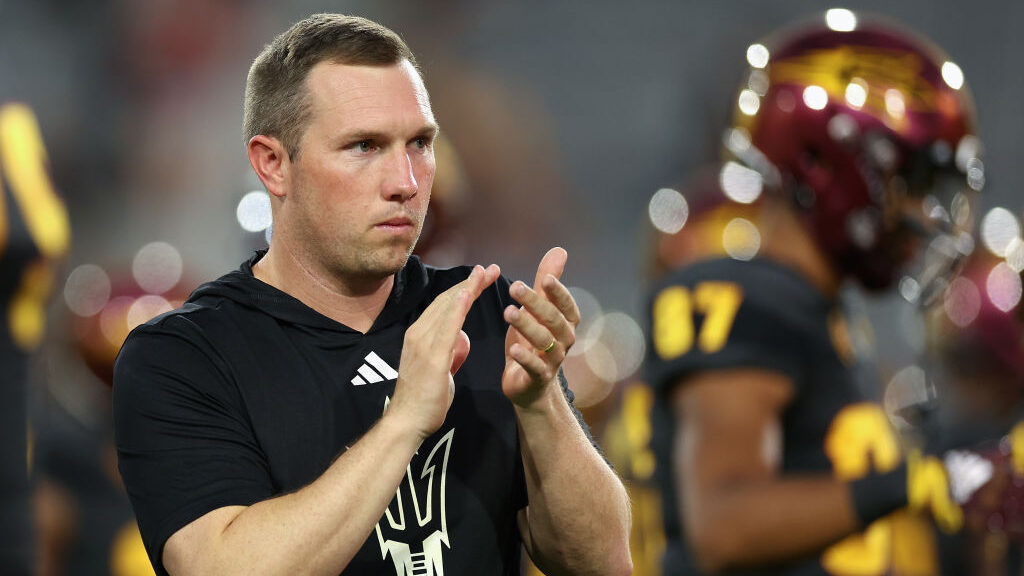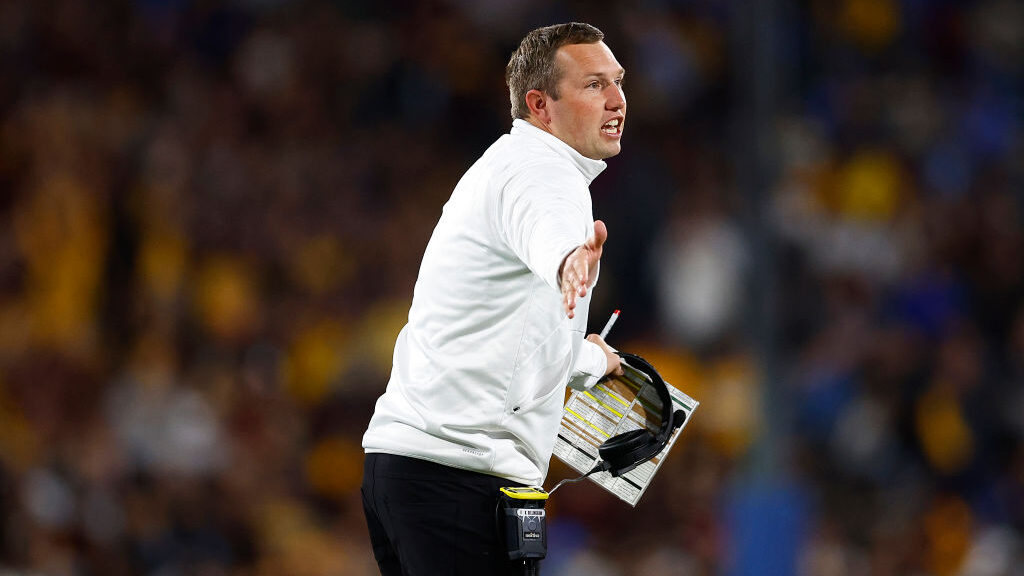Jon Wilner explains how Michael Crow’s future could shake up Pac-12
Feb 27, 2020, 2:03 PM | Updated: Feb 28, 2020, 11:16 am
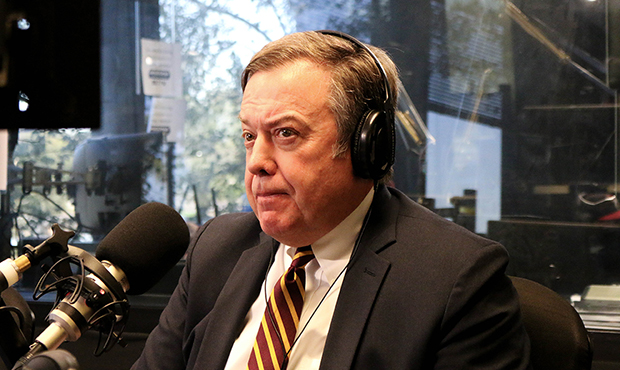
Arizona State University president Michael Crow interviews with Doug & Wolf on 98.7 FM Arizona’s Sports Station on Feb. 13, 2020. (Matt Layman/Arizona Sports)
(Matt Layman/Arizona Sports)
Arizona State University president Michael Crow is “a leading candidate” to become the University of California system’s new president, reported The Mercury News’ Jon Wilner on Thursday.
That hire, if it’s Crow, could drastically change the future of the Pac-12 Conference, Wilner told Bickley & Marotta on 98.7 FM Arizona’s Sports Station.
“I would argue he has been the staunchest supporter of (Pac-12 commissioner) Larry Scott, certainly the most vocal of the staunch supporters,” Wilner said of Crow on Thursday.
ASU told Arizona Sports through a spokesperson that Crow is “not a candidate and he’s committed to ASU and Arizona.” The school added that Crow had not been contacted “in any official capacity” for the University of California job, where he would replace former Arizona governor Janet Napolitano.
“I know for sure that Crow is on the list of folks the UC regents are discussing,” Wilner said. “He could be off that list as soon as today. The special committee that is tasked with finding a president is meeting today, and they may end up going with someone else or recommending someone else to the board.”
Crow, Oregon State president Ed Ray and UCLA president Gene Block are the biggest supporters of Scott, according to Wilner. With Ray and Block expected to leave their positions by next summer, Crow departing his post at ASU could cost Scott another ardent supporter.
Two weeks ago, Crow expressed confidence in the Pac-12 model that puts the non-revenue-generating sports on equal footing as football and men’s basketball.
“(Athletic director and VP for university athletics Ray Anderson) and I are in total alignment here and that is that college sports needs to be college sports across the entire spectrum. We’ve got some runaway things going on in some of the conferences relative to salaries for coaches and all kinds of other things,” Crow told Doug & Wolf on 98.7 FM Arizona’s Sports Station.
“We need football and men’s basketball to be very competitive because they generate the revenue by which we make our programs work. But we’re not going to buy in to the endless model of whatever it takes, whatever happens, this sport is more important than these other sports.”
Poor television numbers for the major sports, a failed deal between the Pac-12 Networks and DirecTV, and exorbitant spending by the conference network relative to counterparts in the Big Ten, SEC and Big 12 have all led to criticism of Scott since he became Pac-10 commissioner in 2009.
Scott resigned as chairman and CEO of the Women’s Tennis Association to take his post, and he didn’t take long to make a mark. Colorado and Utah joined the conference in 2011, and the Pac-12 launched its self-owned TV network under his leadership.
Wilner, who has reported extensively on the Pac-12’s controversial operating philosophies, said that Crow’s support for Scott comes from a different perspective than his counterparts at other universities.
“A key point, whether it’s good or bad … ASU’s business model is so much different than everybody else’s in the conference,” Wilner told Bickley & Marotta. “I think that that impacts Crow’s view of how things are going and also reflects his priorities of the conference at large and support for Scott’s management style.”


